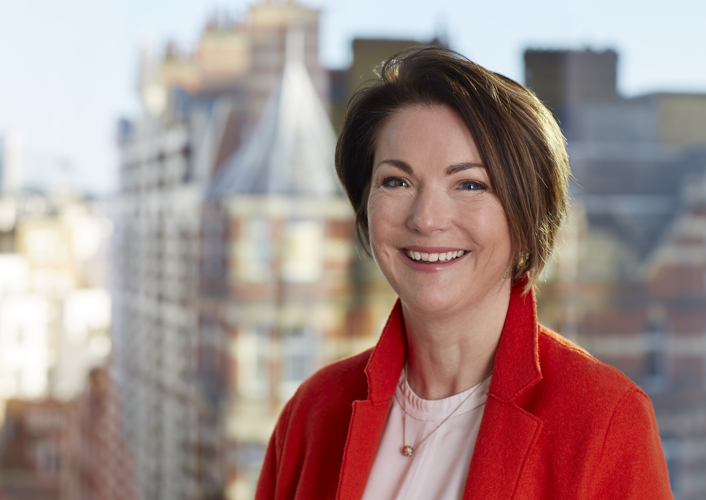The true meaning of success

Suzie Longstaff, headmistress at Putney High School, discusses how the COVID-19 pandemic provides an opportunity to focus on what really matters, with kindness, collaboration and a fresh look at the language of success.
I was recently asked to write a foreword for The Long Win - The Search for a Better Way to Succeed by my former rowing teammate, Cath Bishop. As a former world champion and 2004 Olympic silver medallist in the pair with Katherine Grainger, UK Sport Chair, Cath is no stranger to winning and developing a winning mentality. Cath’s book, which incidentally is an excellent read and I recommend it highly, has made me think about our language of success, traditional expectations and particularly about how those relate to the education we provide at Putney.
What is it about our obsession with coming top? The book examines this cultural preoccupation and how it affects the way we approach not only sport, but education, work and life generally. More crucially, it examines our perception of what really matters over the longer term, the impact we have on those around us and how we develop a meaningful sense of purpose that goes beyond the achieving of short-term targets, or even the challenges of GCSEs or A-levels that in schools we traditionally work towards.
Thanks to COVID-19, the class of 2020 were suddenly faced with the reality of not being able to sit the exams that, in normal times, would be the pinnacle of their school careers. How students should be assessed, or I hate to use the word ‘ranked’, became the preoccupation of not only schools, but of government and national media. One of Putney’s leavers, Lauren Street, spoke recently to Education Choices magazine and explained: “The feeling of uncertainty about my future is something I will not quickly forget.”
Lauren is certainly not alone - these were uncharted waters and required a genuine shift in mindset to navigate. Putney’s wellbeing coach, Laura Mae Brown, has been working with girls particularly in the current Year 11 to help them find ways of ‘sitting with the uncertainty’ surrounding their forthcoming GCSEs. “We have to remind ourselves that we are not alone, our Year 11 are in this with every other Year 11 in the country. Knowing you have a shared experience helps to alleviate the pressure and feeling of isolation – it's a powerful reminder,” she explained. “We are so used to knowing what the goals are, so suddenly having those goal posts change can be very unsettling.” When the dust has settled we will no doubt look back with fresh perspective, but in the meantime, Lauren is one of many who have chosen the positive step of taking a gap year of work experience prior to university, as an opportunity to develop essential life skills and build a CV before she begins her Zoology course at Newcastle next September.
The school years are after all, just the beginning of the learning journey, and to quote some age-old wisdom: it is the journey, however bumpy, rather than the destination that counts. At Putney we hope to instil the skills and attributes that will last the course of that journey; championing the kind of open-mindedness, problem-solving and curiosity that will benefit our leavers long after their exam certificates are boxed up and consigned to the attic.
Co-curricular too is a huge part of this approach, and it is why we put such focus on our co-curricular activities being as important as our academic ones. Although some of our activities have been somewhat curtailed of late, the show has largely gone on, albeit with much juggling of bubbles and disinfectant. It remains the case that Putney’s many sports teams, music ensembles, clubs and societies continue to give girls a sense of belonging and understanding of what it means to be part of something. They acquire new skills (in everything from coding to Scrabble) but they also develop character and discipline, realising the importance of collaboration with others. After all, there are no A*s to be won in KnitWits club or Medical Society, instead there is the fulfilment to be found in camaraderie, self-confidence and the enjoyment of simply taking part.
The importance of connection, be it through relationships, community or teamwork, is something that Cath’s book recognises as one of the long-term successes we can achieve through prioritising cooperation and collaboration over competition. It is through creating authentic relationships rather than transactional ones, that we learn each other’s true value. At Putney, this is a key pillar of an extensive pastoral programme. The work we do with the Positive Schools programme and our commitment to wellbeing in all its forms are the foundations on which self-confidence, happiness, and ultimately success is built.
Being united and having a sense of purpose are cornerstones to living fulfilled and happy lives. During the first lockdown we came together to make scrubs and PPE for local carers and it ignited a sense of community which extended far beyond the walls of Putney High School. We appreciated the value of community involvement, and the joy brought through selflessness and the sense of being a productive and valued member of society. As we embark on a second lockdown, our staff and students will continue volunteering at food banks and supporting local carers and the elderly, and our teachers will be sharing our online lesson resources with local maintained schools.
Success comes in many forms: through our willingness to try new things, to discover our true selves and our place in the world, and our ability to build successful relationships in the process. There are many wonderful outcomes that we should be celebrating and in an uncertain world, we would do well to remember them.

